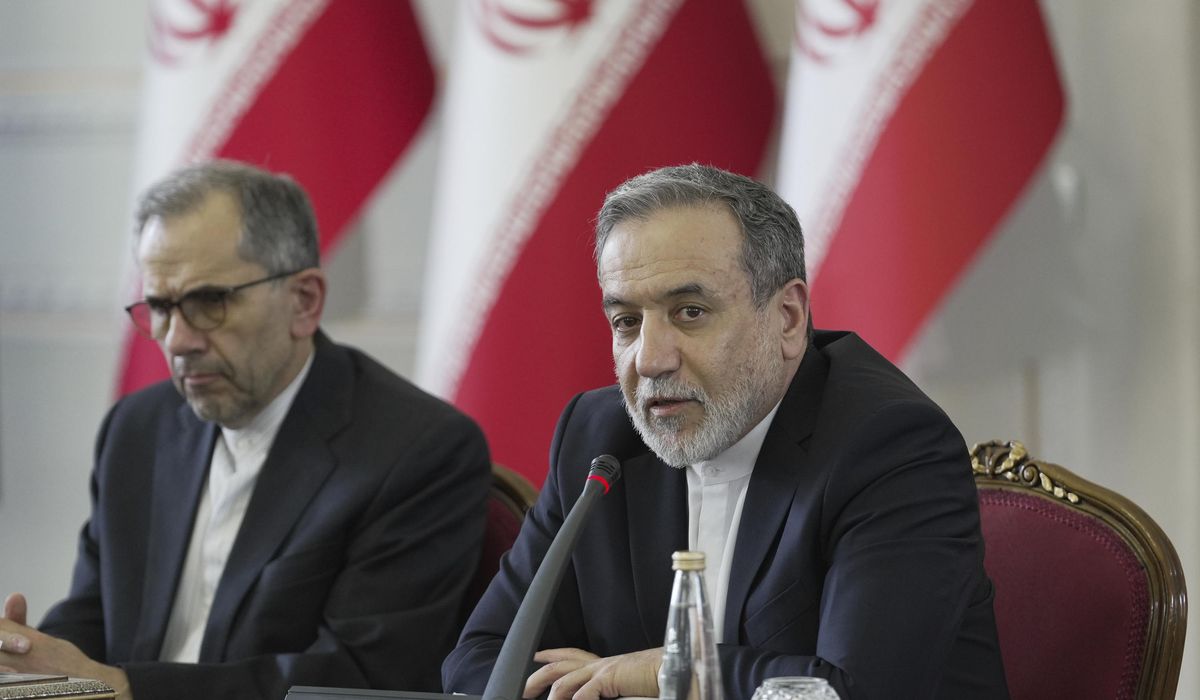


An Iranian government spokesperson confirmed Tuesday that the Islamic republic does not have access to its stockpiles of enriched uranium following its 12-day war with Israel.
Spokesperson Fatemeh Mohajerani said during a press briefing that Iran’s stockpiles are out of reach for Tehran and international inspectors.
“In regard to uranium, we do not have access to it. It is in a location where access does not exist,” Ms. Mohajerani said without divulging where exactly the stockpiles are located.
Tuesday’s revelation came after Iran’s war with Israel in June, in which Israeli and U.S. airstrikes severely damaged many of Iran’s uranium enrichment facilities. Many of the bombed facilities were underground and heavily fortified; and Iran may have housed some stockpiles inside.
Ms. Mohajerani’s comments come as Iranian Foreign Minister Abbas Araghchi travels to Cairo for high-stakes talks with the leaders of the International Atomic Energy Agency and Egyptian officials. Iranian officials have maintained that the talks will finalize an agreement between Tehran and the IAEA that will lead to fresh inspections of nuclear facilities in Iran.
Iranian Foreign Ministry spokesman Esmail Baghaei said Monday that Tuesday’s meeting builds upon the previous meetings between Tehran and the IAEA and that Mr. Araghchi is entering the talks with a draft agreement in hand.
Tensions between IAEA leaders and Iran are high following Tehran’s decision to halt cooperation with the U.N.-backed agency following Iran’s war with Israel. Tehran has accused the IAEA of paving the way for Israel’s war after its board of governors published a resolution that declared Iran in violation of the Nuclear Non-Proliferation Treaty.
Additionally, Iran has accused two IAEA inspectors of smuggling secret documents out of the Fordow enrichment facility before the June war.
“In early May, two documents accessed by inspectors were transferred to Vienna. After Iran submitted a written protest, the authorization of those two inspectors was revoked and their cooperation with Iran ended,” Ms. Mohajerani said Tuesday.
IAEA Director-General Rafael Grossi has denied the allegations, calling them “absurd.”
The talks come as Iran tries to avoid the consequences of the “snapback” mechanism, which could see the reimposition of heavy U.N.-backed sanctions. France, Germany and the United Kingdom triggered the mechanism late last month after Tehran refused to cede ground on several demands concerning its nuclear program.
While Iran has insisted that the triggering of the mechanism is illegal, reports indicate Tehran is desperate to use the 30-day activation window to find a diplomatic solution. Iranian state-affiliated media reported Monday that Supreme Leader Ayatollah Ali Khamenei has instructed President Masoud Pezeshkian to reach out to Qatar to restart negotiations with the U.S.
One of the European nations’ major demands is for Iran to restart nuclear negotiations with the U.S. Washington and Tehran had conducted five rounds of talks earlier this year before they were interrupted by the Israel-Iran war in June.
The reimposition of U.N. sanctions would further strain the Iranian economy, already reeling from existing pressures and the June war. Diplomatically, the snapback sanctions could put a damper on Iran’s relationships with its allies, notably China and Russia. Beijing and Moscow have come to Iran’s defense in the fight over snapback sanctions, both arguing that it is illegal for the European nations to trigger the mechanism.
However, the pressures that the new sanctions would bring could make Iran’s allies rethink their relationship.
“China and Iran have for years laid the groundwork to take their bilateral defense ties to the next level,” Hudson Institute senior fellow Can Kasapoğlu wrote in a recent analysis of Iran and China’s defensive ties. “But impending snapback sanctions are an important factor. Beijing may not want to expand its military cooperation with Iran at the height of Tehran’s nuclear tensions with the West.”
• Vaughn Cockayne can be reached at vcockayne@washingtontimes.com.
